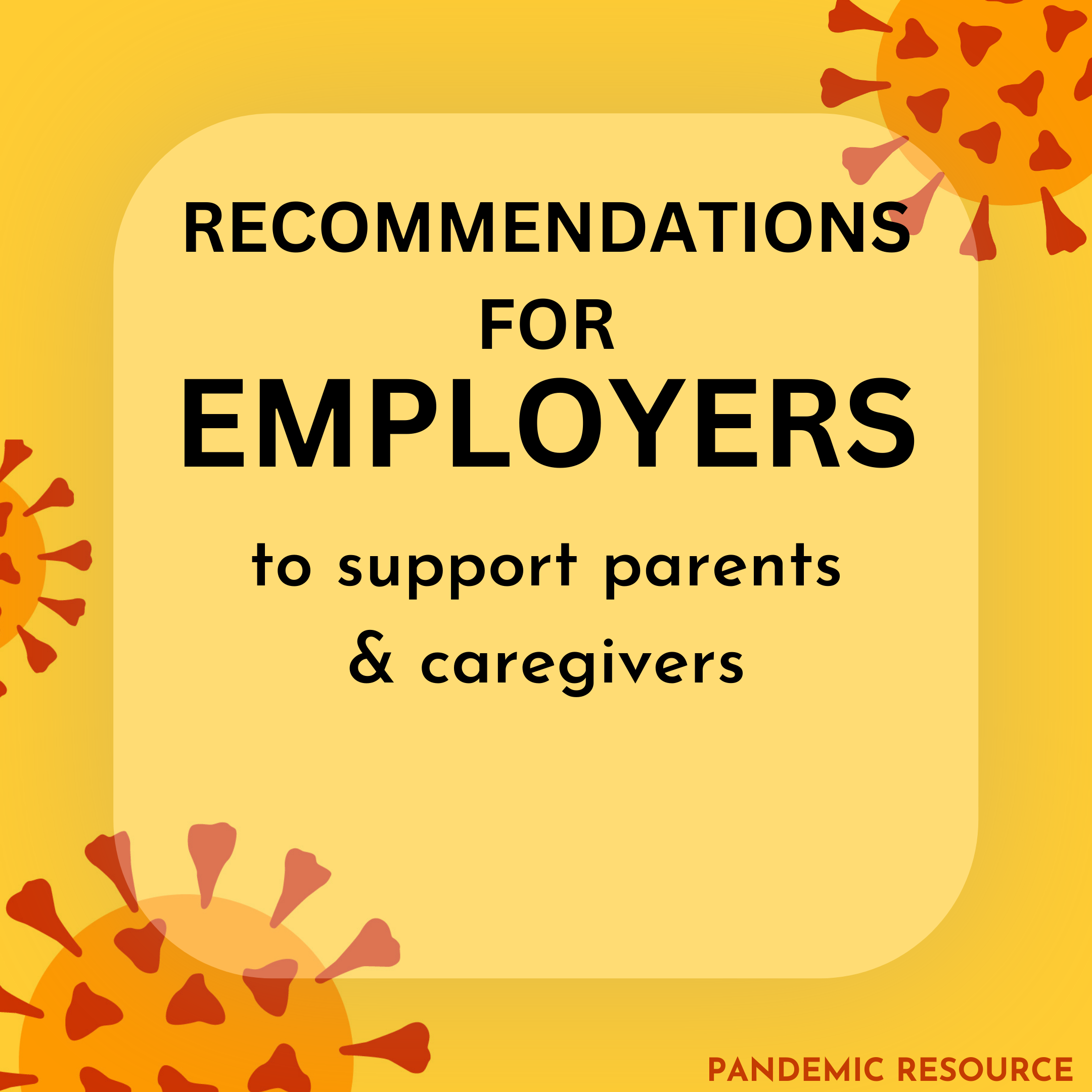Lockdowns imposed in many countries to contain the COVID-19 pandemic have exacerbated structural barriers to the participation of women in the workforce–especially women of colour and other under-represented groups. Mothers have been disproportionately affected by this crisis, with many forced to quit their jobs or reduce working hours to juggle homeschooling and caregiving.
Several reports have shown that in just a few months working mothers around the world were at a breaking point. In the US, about 865,000 women dropped out of the workforce in September 2020 alone, compared to 216,000 men. And the situation isn’t getting any better. In December 2020, women accounted for ALL of the 140,000 job losses in the US, while 16,000 men got hired. Overall, women held about half of the jobs in the US at the start of 2020, but they ended the year holding 860,000 fewer jobs than their male counterparts. This mass exodus of women from the workforce has set women’s progress back several decades in the US. Globally, women’s job losses during the COVID-19 pandemic have been estimated to be 1.8 times greater than men’s. European countries have generally fared better because governments implemented financial stimulus programs to buffer the impact of the pandemic on unemployment, such as short-term programs to help companies furlough employees while keeping them on a salary.
Covid-19 Pandemic Resources
COVID-19 laid bare long-standing inequalities
As schools and daycare centres closed during the COVID-19 pandemic, parents had to juggle homeschooling, housework and a full-time job while simultaneously caring for their children. Not surprisingly, mothers shouldered most of the caregiving and domestic burden. Traditional gender norms remain so deeply rooted in our society that even during an unprecedented global health crisis mothers were expected to take on an unrealistic amount of unpaid work in addition to their full-time job. And on top of this impossible daily balancing act, mothers also had to cope with the pressures of social isolation and the anxiety caused by the health and economic uncertainty of a pandemic. Surveys show that parents of young children have higher levels of stress and anxiety than other population groups, and mothers’ mental health is the most affected.
For mothers in STEM (Science, Technology, Engineering and Maths), the situation isn’t any better. In polls conducted within our online community, over 60% of women said they spent more time than their spouse on homeschooling and/or caregiving during the pandemic, while only about 29% replied their partner did (n=224). Even before the pandemic, women globally did about 75% of unpaid care work, which is over three times more than men did. Women scientists, including those in dual-academic couples, did nearly twice as much housework as their partners before the pandemic, even though they also worked up to 60 hours a week.
Lack of childcare is another problem that disproportionately affects women and which has been amplified by the pandemic. Over 34% of women in our polls said they didn’t have ANY childcare support during daycare or school closures, while 35% had help from family members and only about 26% received support from their partners (n=189). As many daycare services are going bankrupt due to forced closures, more women are likely to leave their jobs after the pandemic to care for their children. Surveys found that a third of Canadian mothers was considering leaving their jobs because of the pandemic, and one in four women in the US were considering downshifting their careers or leaving their jobs altogether.
COVID-19 pandemic and scientific productivity
In STEM fields, the pandemic has taken an uneven toll on the scientific productivity and mental health of women scientists. Early preliminary analyses found that there was a drop in preprint submission rates of up to 20% for women economists during the first lockdown in March and April 2020, while male authors submitted at a higher rate than women to the asXiv and bioRxiv preprint servers. Another study looking at the submission rate of 307,459 preprints and reports to several different depositories also revealed lower submission rates from women during these months, compared with the preceding months and the previous year.
These submission trends were confirmed by editors of several academic journals in a series of statements, and by a larger study looking at submitted manuscripts to all Elsevier journals, which comprises data on six million academics. The data shows that women submitted fewer manuscripts than men during the COVID-19 lockdown months.
A more recent survey of 3,345 academics in Brazil found that the academic productivity of mothers and Black women (with or without children) was disproportionately affected by the pandemic. In polls conducted within our online community, 65% of women scientists said that they either lost their job or reduced their working hours to balance childcare and work during the pandemic (n=143), and over 90% reported that their work productivity had been affected (n=117).
Together, these alarming data raise concerns over potential long-term effects on the career of women scientists, with a probable reversal of decades of progress to close the gender gap in STEM. Leaders of research institutions and funding agencies must take immediate action to prevent further aggravation of the long-standing inequalities that limit the career advancement of women in STEM.
Time to take action
As with many other crisis in history, women are bearing the weight of the COVID-19 pandemic. Mothers in STEM already faced enough challenges to beat the odds when the global COVID-19 pandemic factored in. About 86% of women scientists in our polls said they were concerned about being able to continue working if their children can’t attend daycare centres or schools (n=205). To ensure a swift recovery from this crisis and to prevent long-term impacts on the careers of women scientists, decision-makers must act now. Lab heads, universities, research institutions, funding agencies and publishers should implement the necessary measures and policies to support and retain mothers in STEM careers and to promote gender equality. We and others have made recommendations to employers and leaders in STEM institutions for such accommodations to support parents and caregivers during the COVID-19 pandemic and beyond.
A robust economic recovery relies on retaining and ensuring the re-entry of mothers into the labour market. The reopening of schools and an investment in public childcare services will determine the swiftness of the economic recovery. It is important to not only repair the negative effects of the pandemic on the careers of women but also learn from this experience and begin making systemic changes. A recent report with economic projections showed that the faster policy-makers and business leaders act to push for gender equality, even during the COVID-19 crisis, the bigger the benefits for economic growth. Likewise, diversity and inclusion increase research quality and accelerate scientific and technological progress. Let’s think outside the box and begin normalising caregiving and change our workplace culture to make it more inclusive for parents and caregivers.









